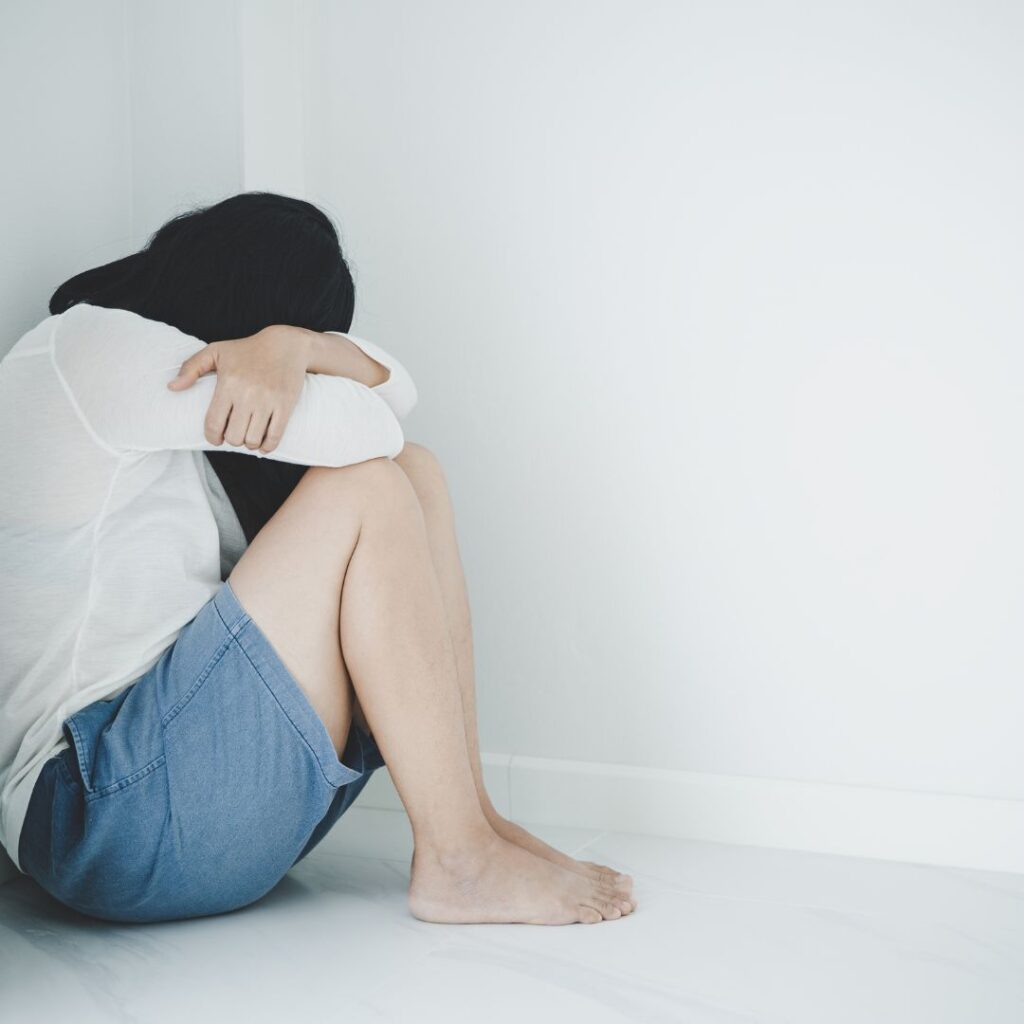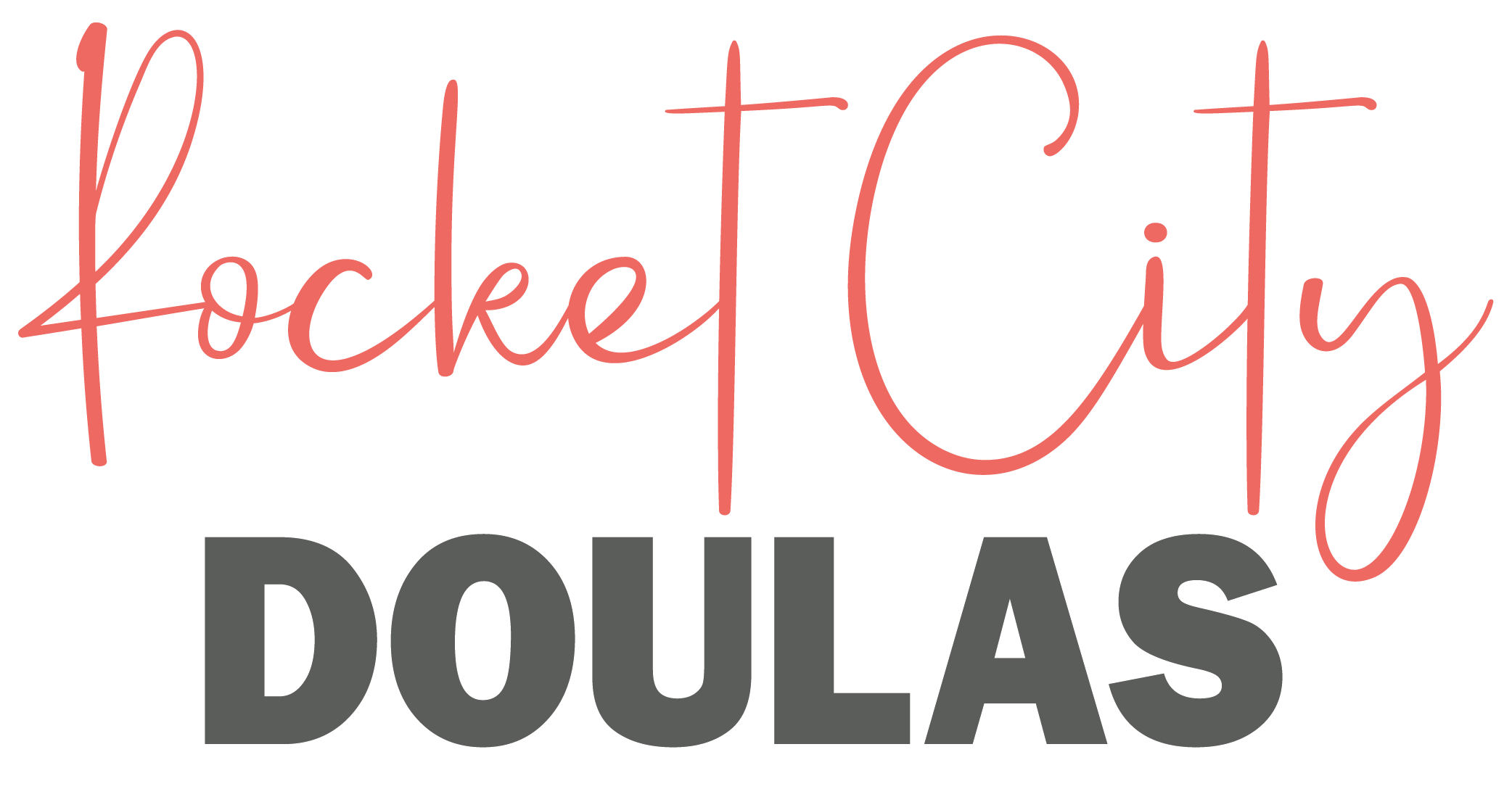I remember the first intrusive thought I had after the birth of our third child (and our first baby post-repeated pregnancy loss). I was walking over a bridge, and I was holding our newborn. For whatever reason, my brain decided to serve a crystal clear image- one of me dropping our newborn while standing on the bridge, him rolling under the railing, and him falling straight into the water below.
Over the next several months, I continued to have similar intrusive thoughts, particularly surrounding water. They permeated my days and my dreams.
I told no one.
I told no one because I thought I was a bad mother- for imagining my baby drowning in so many ways.
I thought I was ALONE in my intrusive thoughts.
I thought that postpartum mood disorders only looked like depression and sadness. I had no idea that postpartum mood disorders could include anger, irritability, and intrusive thoughts/OCD. (I had no idea that intrusive thoughts were fairly common until years later. The difference between an intrusive thought and delusion is that the person is AWARE that the intrusive thought is not reality. In a delusion/hallucination, the person is convinced what they’re seeing/hearing is real or happening.)
Once I recognized that I needed help, I was 9 months postpartum. I went on medication, that didn’t work, and then got pregnant again with our fourth child. In the same sudden way my PMAD appeared, my PMAD disappeared with my new batch of pregnancy hormones.
Until I started training doulas in 2021, I never told my PMAD story.
Ever.
I had a lot of shame surrounding my thoughts and postpartum experience. We had fought so hard for our baby to be with us, only to be riddled with anxiety and drowning in thoughts of him drowning once he was here.
These types of discussions are rarely comfortable and are almost always hard. But, they’re vital.
It’s important to remember something about postpartum mood disorders, though- they are a complication of pregnancy.
Postpartum mood disorders are not character flaws. They are a complication of pregnancy.
Some circumstances increase the likelihood of developing a PMAD, but in general, we don’t get to decide to have a postpartum mood disorder just as much as we don’t get to decide we aren’t going to develop one.

So, What is a PMAD?
PMAD stands for Perinatal Mood and Anxiety Disorders. PMADs include baby blues, postpartum depression, postpartum anxiety, postpartum OCD, postpartum PTSD, perinatal panic disorder, perinatal bipolar disorder, and postpartum psychosis.
How do I know if I have a PMAD?
A LOT of people experience baby blues after birth (70-80%). Symptoms often include anxiety, sadness, irritability, and trouble sleeping.
Postpartum Depression symptoms include, but are not limited to, severe mood swings, difficulty bonding with the baby, feelings of shame, anger, irritability (often intense), and insomnia.
Postpartum Anxiety symptoms include, but are not limited to, worrying, irritability or rage, racing thoughts, nausea/loss of appetite, and insomnia.
Postpartum OCD symptoms include, but are not limited to, intrusive thoughts, obsessions, fear of being alone with the baby, and compulsive behaviors.
Postpartum PTSD symptoms include, but are not limited to, flashbacks, nightmares, anxiety, insomnia, and hypervigilance.
Postpartum Psychosis symptoms include, but are not limited to, delusions, hallucinations, paranoia, self-harm (thoughts or attempts), and thoughts or attempts of harming the baby.
I’m a doula, and not a mental health professional, and we’re experts in “normal”. What does normal mental health recovery look like after birth?
The main idea when contemplating if you’re experiencing more than baby blues is “is this getting better?” Is the general trend of your symptoms improving?
If your answer is “no” or your answer is “my symptoms are getting worse”, then it may be time to reach out to your OBGYN or mental health provider. And, as an age-old recommendation from a doula is- even if you can’t pinpoint if your symptoms are better or worse if your gut says to bring it up to a provider, bring it up to your provider.
For a list of symptoms, please read the PSI fact sheet here.
How common are PMADs?
According to Postpartum Support International:
Baby Blues: 70-80%
Postpartum Depression: 15-21%
Postpartum Anxiety: 10%
Perinatal Panic Disorder: 11%
Perinatal OCD: 11%
Postpartum Posttraumatic Stress Disorder: 9%
Postpartum Psychosis: .2%
10% of new Dads also may experience anxiety, depression, or other mood disorders.
Local resources for Perinatal Mood and Anxiety Disorders:
As I was typing this, I happened to open up Facebook and see this new post from Rocket City Mom. They have posted a few Facebook resources we recommend. They also have a list of local mom-support groups (minus ours. Ours is not listed and is for new and expectant parents on Thursdays. Please message us for more information.) For more details and resources, check out Rocket City Mom’s post here.
If you need to talk to someone in your community and need help contacting these resources, please reach out to us! Email us at info@rocketcitydoulas.com to set up a time to talk. Our Postpartum and Infant Care Doulas can also work alongside mental health professionals to work together on your care plan.
Postpartum Support International
Call the PSI HelpLine: 1-800-944-4773 or Text “Help” to 800-944-4773
National Alliance on Mental Illness Huntsville
1-256-534-2628
National Hopeline Network
(800) SUICIDE
National Suicide Prevention Lifeline
(800) 273-TALK (8255)
Suicide Prevention Hotline
Dial 988
Family Support Groups- NAMI Huntsville
No registration or fees associated. Must be approved by the group leader to attend.
Huntsville: Every Wednesday 5:30 pm
Athens: Every 1st & 3rd Tue. at 6:00 pm (Contact Mark Prescott for directions at 256.777.6774)


